Top MDs Reveal the 10 Best Foods to Eat For Gut Health
These foods have slimming and energy-boosting benefits
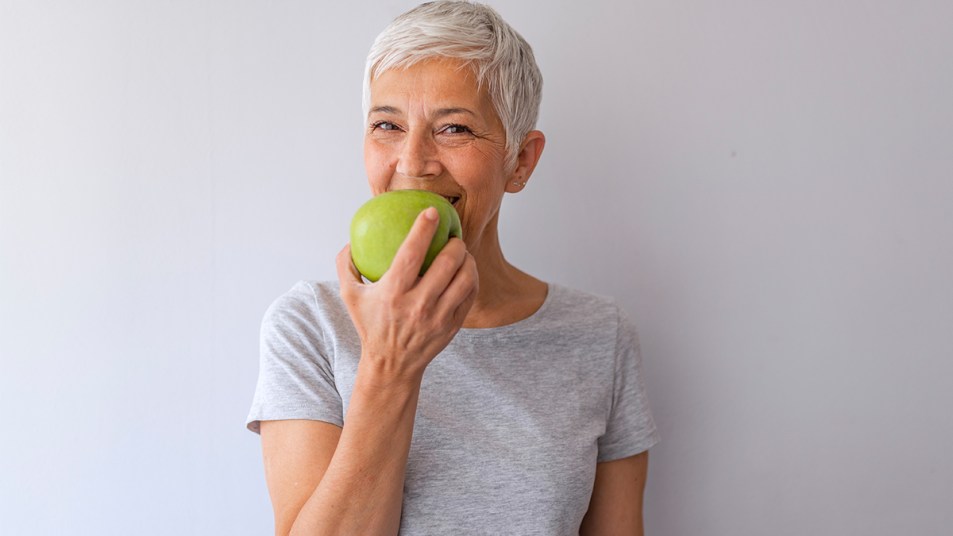
We all grew up knowing how important our brain and heart are to our overall health. But it’s only been within the past few years that scientists have begun to uncover how crucial our gut — especially the microscopic colonies of bacteria living there — is to how we look and feel. Everything from immunity and energy to mood and our ability to lose weight is tied to our intestinal tract and the trillions of microbes that make up our microbiome there. As we age, we tend to develop more problems with our gut due to an accumulation of toxins or an imbalance of bad bugs in this all-important system. Common foods such as sugar and wheat have also been shown to inflame and irritate the stomach lining. But other foods can heal the gut! Which ones? We asked experts for the best foods to eat for gut health. Read on for their answers
Why a healthy gut is so important to overall health
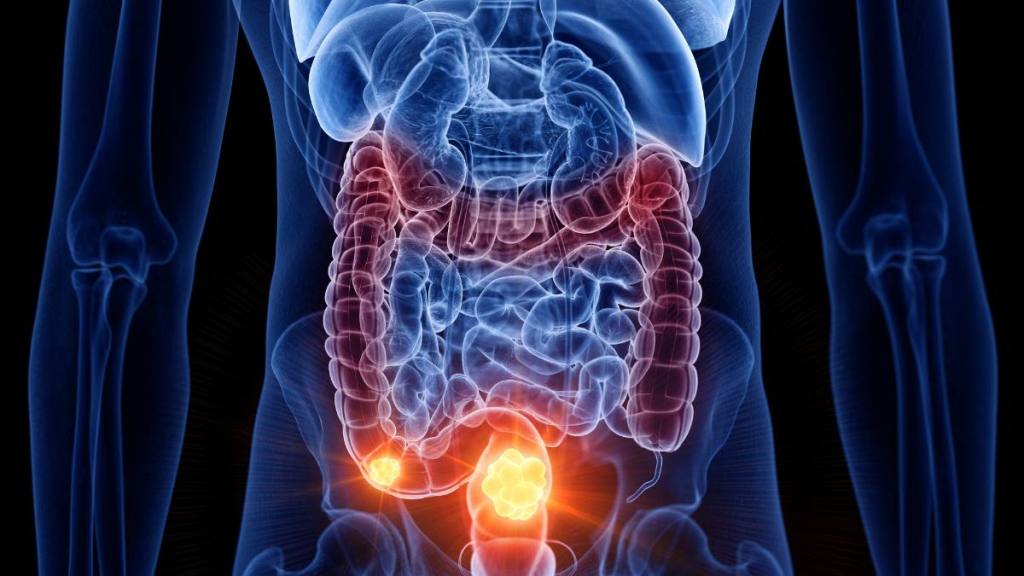
When we eat those gut-damaging foods, toxins can leak through the lining of the intestine and into the bloodstream: a condition known as leaky gut syndrome. The result? Fatigue, brain fog, food sensitivities, pain and weight struggles. Thankfully, the gut can heal itself quickly. “It’s amazing how when given the right support for healing, women start seeing improvements in literally days!” says Michael Ruscio, DNM, author of Healthy Gut, Healthy You.
For starters, weight loss becomes nearly effortless. “When the inflammation and bad bugs are controlled, the body no longer has to hold on to fat and water weight, so pounds come off easily,” explains Vincent Pedre, MD, author of Happy Gut: The Cleansing Program to Help You Lose Weight, Gain Energy, and Eliminate Pain. Ready to drive wellness and weight loss with the tasty meals you eat every day? Here, the secrets behind the three most powerful groups of gut-supporting foods and the best examples of each.
Probiotic-rich pick #1: yogurt

Yogurt is rich in calcium and protein, but Dr. Parikh says its gut-boosting powers can be attributed to Lactobacillus, a type of good bacteria that “breaks down lactose and supports digestion.”
Several studies have confirmed these benefits. One, published in the journal, Molecules, concluded that consuming probiotics, like Lactobacillus and Bifidobacterium, reduced symptoms of constipation, increased intestinal motility, and boosted stool production. In other words, these good bacteria promote “regularity,” which is increasingly important with age. Consider that 26% of women 65 and older report being constipated” url=”https://www.firstforwomen.com/posts/diet/leaky-gut-symptoms” title=”“Leaky Gut Is Now an Epidemic,” Says Steven Gundry, MD — 6 Easy Ways to Heal Your Gut & Lose Weight for Good!
Best foods to eat for gut health: Probiotics
Given how important the gut is, it’s surprising that its lining is only one cell layer thick. “It’s sensitive and surprisingly quite easy to damage,” Dr. Pedre says. But probiotics — healthy microbes that provide various health benefits — stimulate mucus production along the gut barrier, making it thick and strong.
Probiotics also keep the interior of the gut healthy, preventing harmful bacteria species from overrunning the system. William Davis, MD, author of Super Gut: A Four Week Plan to Reprogram Your Gut Biome, observes, “Probiotics are the cornerstone of ‘reseeding’ your garden with good gut flora and healthy bacterial species.”
Wondering which probiotic foods to try? We asked Chiti Parikh, MD, author of Intentional Health: Detoxify, Nourish and Rejuvenate Your Body Into Balance and the founder of Integrative Health & Wellbeing at Weill Cornell Medicine, New York Presbyterian Hospital. Here, her top picks, all of which "contain live cultures of beneficial bacteria that can help to balance the gut microbiome.”
Probiotic-rich pick #1: yogurt

Yogurt is rich in calcium and protein, but Dr. Parikh says its gut-boosting powers can be attributed to Lactobacillus, a type of good bacteria that “breaks down lactose and supports digestion.”
Several studies have confirmed these benefits. One, published in the journal, Molecules, concluded that consuming probiotics, like Lactobacillus and Bifidobacterium, reduced symptoms of constipation, increased intestinal motility, and boosted stool production. In other words, these good bacteria promote “regularity,” which is increasingly important with age. Consider that 26% of women 65 and older report being constipated” target=”” thumb=”true” imgsrc=”” imgid=”303848″ flag=””]
You’re probably familiar with sauerkraut if you grew up in a family of German ancestry. The tart, pickled cabbage can be served hot or cold and pairs well with almost anything, from bratwurst to potatoes. It’s also “a source of various probiotic strains which can positively influence the balance of your gut microbiota,” says Ibrahim Hanouneh, MD, a former Cleveland Clinic gastroenterologist and the co-author of Regenerative Health: Discover Your Metabolic Type and Renew Your Liver for Life. One in particular, called Lactobacillus plantarum, “helps reduce gut inflammation and improves immune function,” Dr. Parikh adds. Several studies confirm sauerkraut’s gut health benefits. One, conducted on animals and published in Frontiers in Microbiology, found that subjects who consumed Lactobacillus plantarum experienced enhanced intestinal barrier function and improved gut bacteria ecology. In less scientific terms, they had healthier gut microbiomes. The sauerkraut-based probiotics even reduced the amount of harmful gut bacteria associated with inflammation. Like sauerkraut, Kimchi is a type of pickled cabbage. It has a spicy, tangy flavor featuring notes of garlic, ginger, and chili. Kimchi is an essential part of Korean cuisine, but it’s starting to catch on stateside as well. One of the main reasons? It’s loaded with probiotics. “Kimchi contains a variety of bacteria, including Lactobacillus brevis,” says Dr. Parikh. “[L. brevis] has been shown to promote improved digestion, enhance immune system function, reduce inflammation, and improve cholesterol levels.” L. brevis is especially good at fighting Heliobacter pylori (H. pylori). This common but harmful gut bacteria causes various digestive problems, including bloating, nausea, and stomach ulcers. By adding kimchi to your diet, Dr. Parikh says you can introduce beneficial bacteria to your gut and help “maintain a diverse and healthy microbiome.” (Click through to learn why Kimchi is considered a Superfood). If you’re sensitive to dairy or don’t enjoy cabbage, you can still include probiotics in your diet. Case in point: sourdough bread. Sourdough is as versatile as it is delicious, whether you toast it or use it to make croutons. “Sourdough bread is made with fermented flour that contains probiotics,” says Carmelita Lombera, RDN, a registered dietitian and nutrition consultant for Consumer Health Digest. “Try swapping out white bread for sourdough in your next sandwich. Look for a sourdough bread that uses traditional baking methods, like those made by artisan bakers.” One to try: Plain Sourdough Loaf (Buy from Wildgrain) Probiotic bugs need to eat, too. That’s where prebiotics come in. Prebiotics are the preferred food source of good gut bacteria and are nutritional components found in fermentable fiber and plants: think fruits, vegetables, and alliums. “Not only do prebiotic fibers feed healthy bacterial species, they also encourage bugs to produce metabolites — or by-products — that yield a range of health benefits,” Dr. Davis says. Similar to probiotics, prebiotics are linked to better regularity. Bonus: One animal study found mice were less likely to experience sleep disturbances after eating prebiotics. To start reaping the rewards that prebiotics provide, try adding one (or more) of the following foods to your diet: You know garlic punches up the flavor of any dish, but did you know it also supports gut health? “[Garlic] contains high amounts of inulin, a type of fiber that acts as a food source for beneficial gut bacteria,” Dr. Parikh says. “Inulin helps stimulate the growth and activity of these bacteria, leading to a more diverse and balanced microbiome.” Dr. Parikh knows what she’s talking about! One meta-analysis of inulin research published in the European Journal of Clinical Microbiology and Infectious Diseases concluded that people who consumed inulin experienced increased amounts of several gut-friendly bacteria, including Lactobacillus (mentioned above), Bifidobacterium and Anaerostipes (a type of bacteria thought to defend against colon cancer). Dr. Hanouneh says you can support the good bacteria in your gut by eating bananas and plantains. “[These fruits] contain starch, a type of carbohydrate that acts as a prebiotic and promotes the growth of beneficial gut bacteria,” he explains. But not just any banana will do. For the best results, munch on green bananas –– aka the ones that aren’t totally ripe. The riper (yellower) a banana gets, the more of its starch is converted to sugar. As a result, ripe bananas provide fewer prebiotic benefits. Don’t eat more than one green banana at a time, as too much starch increases your risk of a stomachache. (Click through to learn if sucralose raises blood sugar and to see gut-friendly sweeteners.) We’ve all heard the saying, “An apple a day keeps the doctor away,” but these juicy, crunchy fruits can also complement gut health. That’s because “apples contain pectin,” Dr. Hanouneh says. “Pectin is a type of fiber that acts as a prebiotic and supports gut health.” The pectin in apples is a powerful prebiotic. In one animal study, researchers concluded that subjects who consumed apple pectin had greater gut bacteria diversity, improved gut barrier function and reduced inflammation. Apple pectin also seemed to reduce cholesterol and blood sugar levels. Bottom line: “Think of prebiotics as fertilizer for your gut garden,” Dr. Parikh says. “Without them, your probiotics (or good gut bacteria) may not flourish as well.” As healthy bacteria break down prebiotics, they release beneficial gases, compounds and signaling molecules called postbiotics. And postbiotics communicate with our cells to work their magic in correcting health problems. Although the science is new on this subject, postbiotics have already been linked to various health benefits. Specifically, “postbiotics have the remarkable ability to alleviate inflammation in the body, particularly in our gut,” says Dr. Parikh. “Not only do they fortify our immune system, but they also enhance our metabolism. Numerous studies have demonstrated their potential to facilitate weight loss and lower blood sugar and cholesterol levels. Moreover, postbiotics can diminish the risk of colon cancer and protect vital organs such as the heart, liver, and brain.” Yale-trained nutrition expert Steven Gundry, MD, agrees, noting “In weeks, pain goes away, heartburn goes away. Autoimmune diseases can go away.” Since postbiotics are the byproduct of a healthy gut, the best way to increase their levels is by eating fermented and pickled foods. To increase postbiotic production, try adding some of the following foods to your diet: Tempeh is a “fermented soybean product that has a nutty flavor and a firm texture, making it a popular meat substitute,” Dr. Hanouneh says. “It contains live beneficial microorganisms that promote gut health.” One of those “good guys is the Lactobacillus plantarum found in sauerkraut. And a study published in the Polish Journal of Microbiology, found that participants who ate tempeh experienced increases in several types of “good” gut bacteria. Since postbiotics come from these good bacteria, it’s safe to assume that eating tempeh can help boost their numbers. Humans have been pickling vegetables for thousands of years to increase their shelf life and prevent waste. But this vinegar-based preservation technique also supports digestive health. Like fermentation, pickling provides a perfect environment for probiotics — those “good” gut bacteria. Pickled vegetables are especially rich in the nutrients (or prebiotics) those bacteria eat, including pectin, starch, and inulin. Most grocery and health food stores carry a wide selection of pickled vegetables, including beets, asparagus, roasted red peppers, carrots, and cucumbers. (Click through to learn easy ways to include pickle juice in your cooking). Butter is often spread on bread or used to enhance the flavor of foods and sauces. You probably don’t consider it a healthy food, but Dr. Parikh says that when consumed in moderation, butter can help support your gut biome. That’s because butter contains butyrate, a short-chain fatty acid and postbiotic that speeds metabolism, burns, fat and tames hunger. That’s not all, though. Butyrate is essential for digestion. Research suggests it can reduce the risk of colon cancer, minimize gut inflammation, and increase intestinal motility (regularity). Dr. Parikh says the optimal intake of prebiotics, probiotics and postbiotics varies from person to person, so there’s no one-size-fits-all recommendation. “Factors such as age, overall health and specific health conditions play a role in determining the ideal amounts,” she explains. “Most people need to consume around 10 to 20 billion active probiotics to begin experiencing the benefits, but that may take a month or longer,” Lombera says. “Prebiotic foods like fruits, vegetables, nuts and seeds can be consumed as part of your diet to [speed up the process.] Aiming for a minimum of 25 grams of fiber per day with a combination of these foods will help provide more fuel for your gut bacteria.” Dr. Parikh say a good rule of thumb is to “aim for at least one serving of pickled or fermented food each day.” You might also benefit from taking a probiotic supplement. For best results, Lombera advising choosing a probiotic containing more than one strain of bacteria. Also, “look for probiotics that are third-party tested to ensure purity and potency.” One to try: Physician’s Choice Probiotics (Buy on Amazon, $19.77, 30 capsules). This is a great option if you’re trying to improve your gut health quickly. “What stands out most about Physician’s Choice probiotics is its effectiveness,” says verified buyer Nada W. “I’ve noticed a considerable improvement in my digestive health since I began taking it. Bloating and discomfort have been reduced and my overall gut health feels more balanced.” Prebiotics, probiotics and postbiotics provide a plethora of benefits, but you may want to hold off if you have digestive problems or an overly sensitive stomach. For instance, Lombera says if you suffer from acid reflux or irritable bowel syndrome (IBS), you might “find it difficult to consume certain fruits and vegetables.” Similarly, eating excessive amounts of fiber can exacerbate symptoms of short bowel syndrome (a condition that affects the body’s ability to absorb nutrients from food). To reduce the risk of side effects, like gas, bloating and diarrhea, speak with your doctor to see if these foods are right for you, For more on gut health, click through the links below! Nutritionist: Energy Vampires Are Real — And Likely Living In Your Gut Right Now We’ve Been Eating Chia Seeds Wrong — Study Says Grinding Them Boosts Gut Health Benefits Take Your Probiotic With This Decadent Brownie Recipe That’s Good for Your GutProbiotic-rich pick #2: sauerkraut
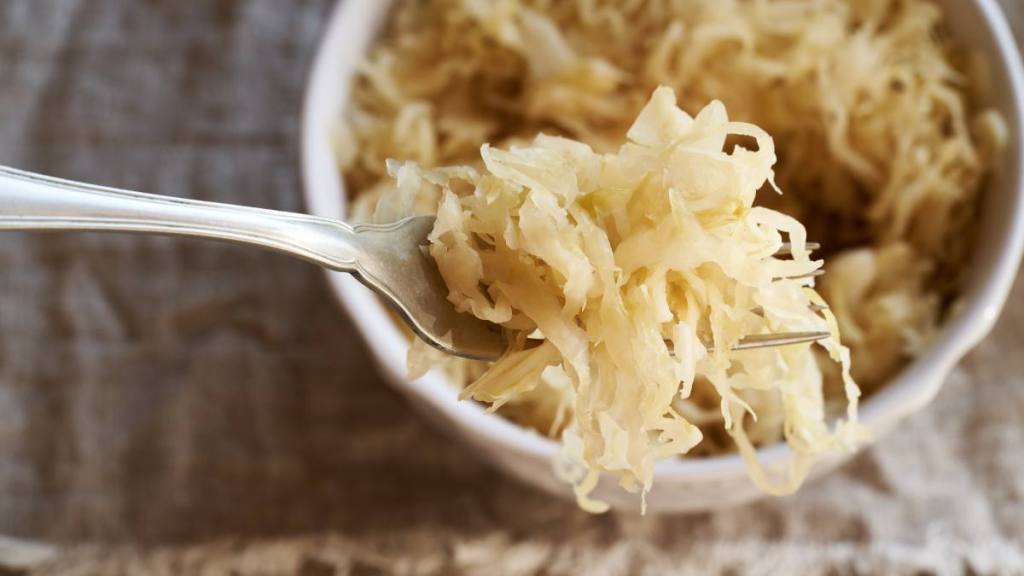
Probiotic-rich pick #3 : kimchi
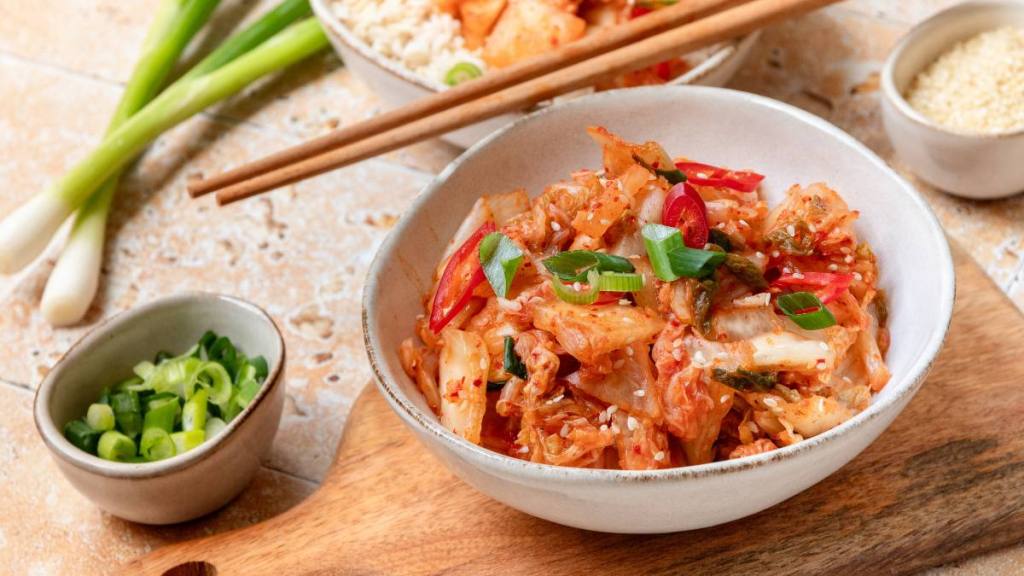
Bonus: Eat this type of bread
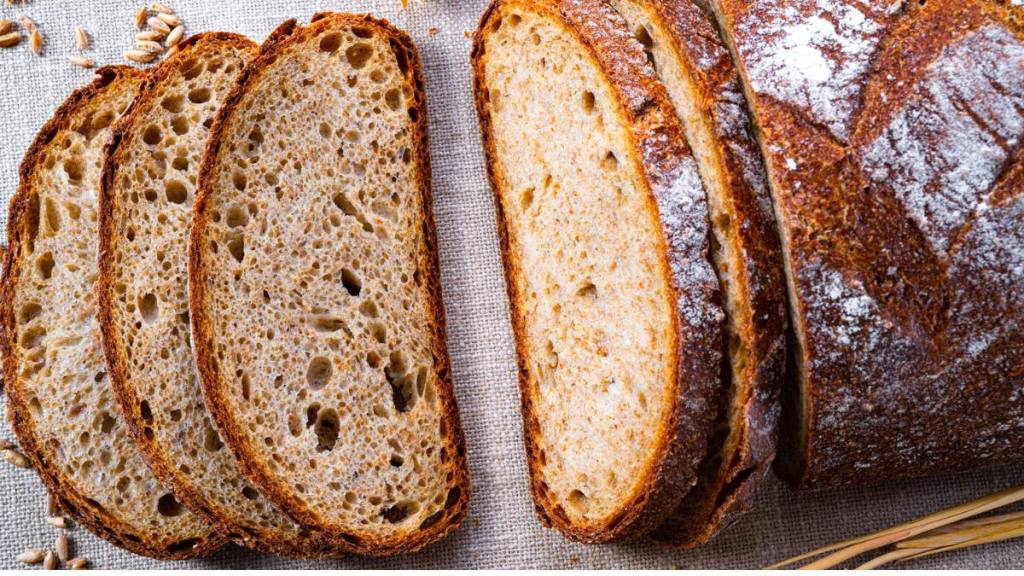
Best foods to eat for gut health: Prebiotics
Prebiotic-rich food #1: garlic
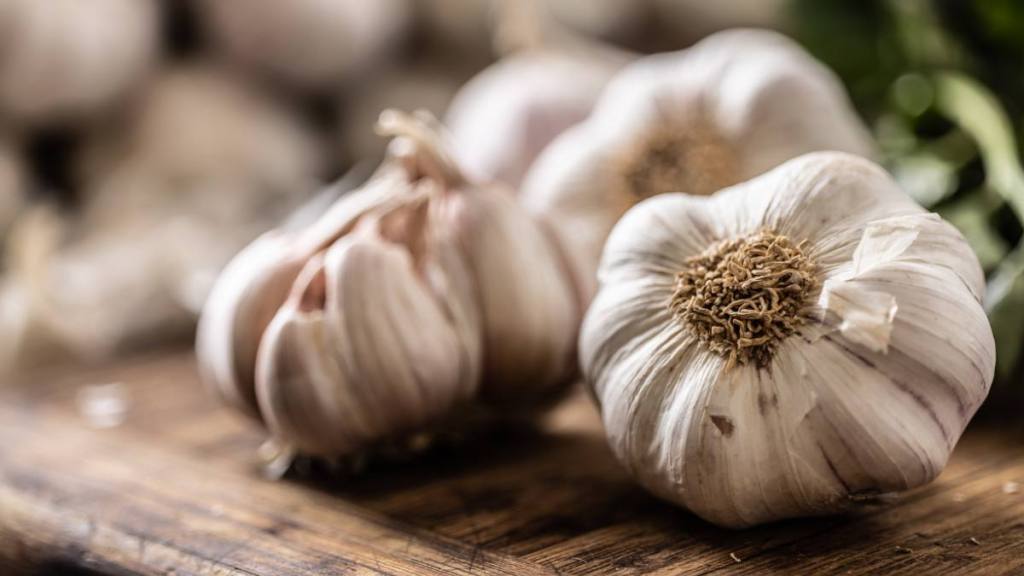
Prebiotic-rich food #2: Bananas this way
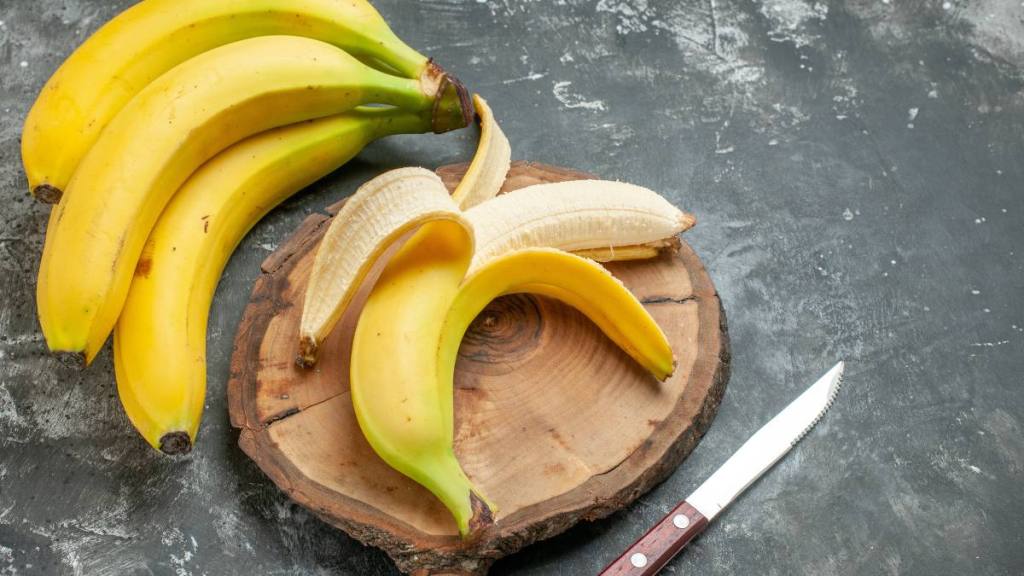
Prebiotic-rich food #3: apples
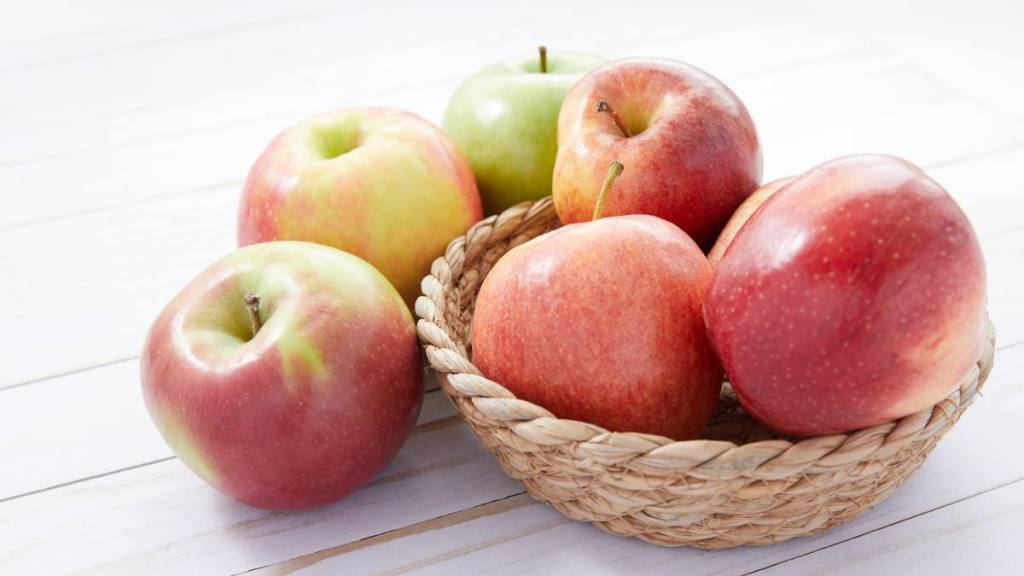
Best foods to eat for gut health: Postbiotics
Postbiotic-rich food #1: tempeh
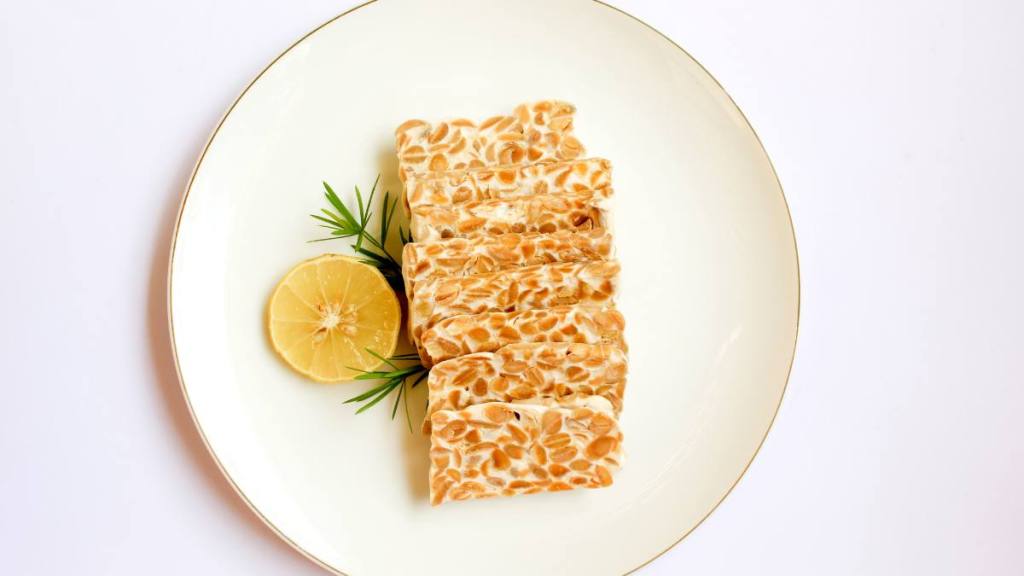
Postbiotic-rich food #2: Pickled vegetables
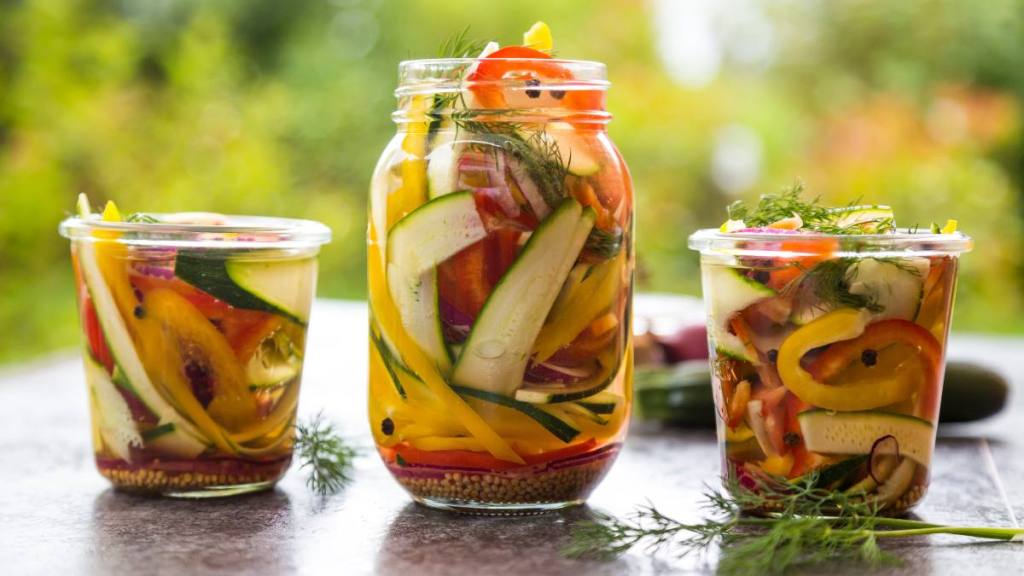
Postbiotic-rich food #3: butter
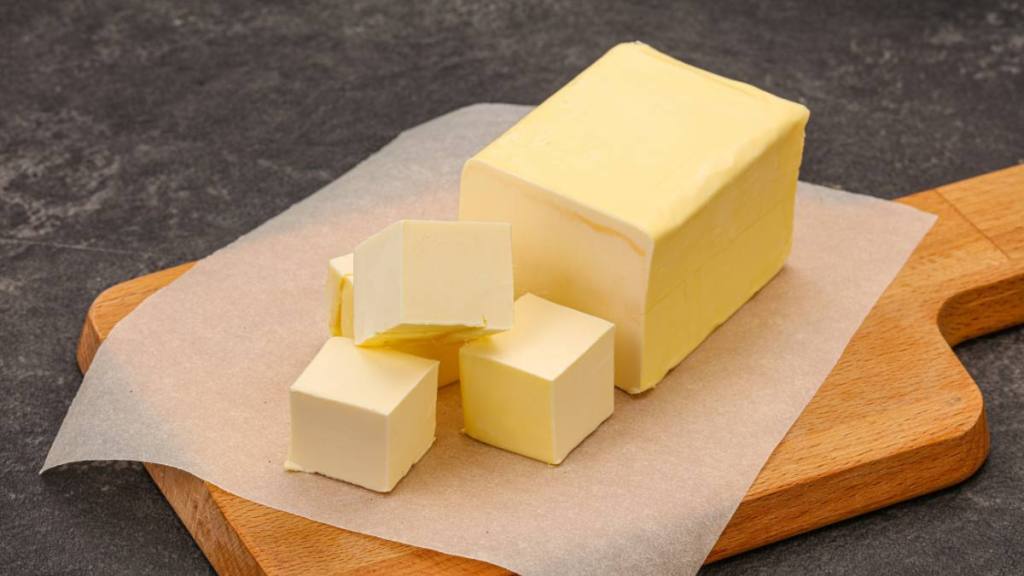
How much of thes gut-healing foods should you eat?
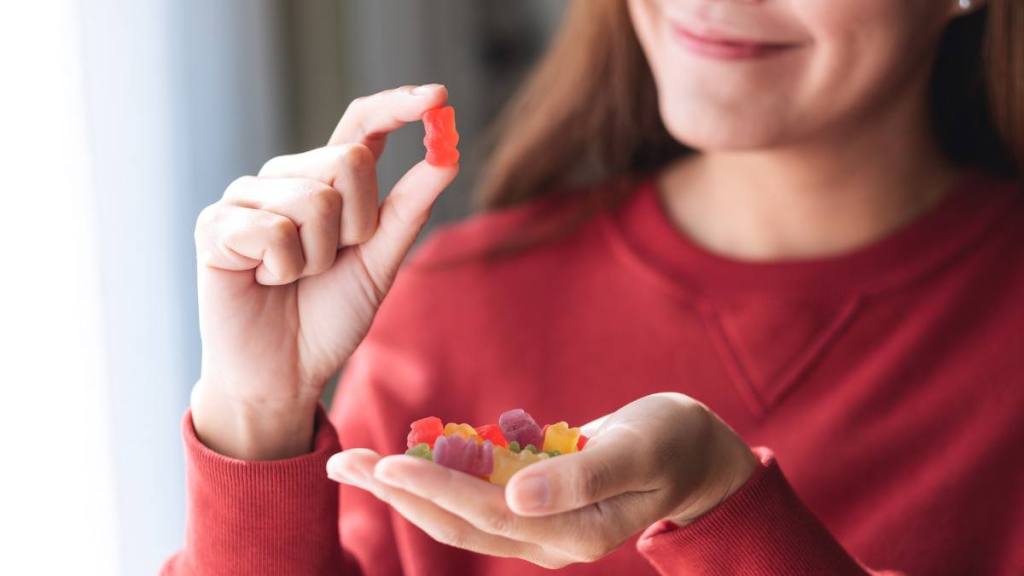
Are prebiotics, probiotics and postbiotics right for everyone?


















